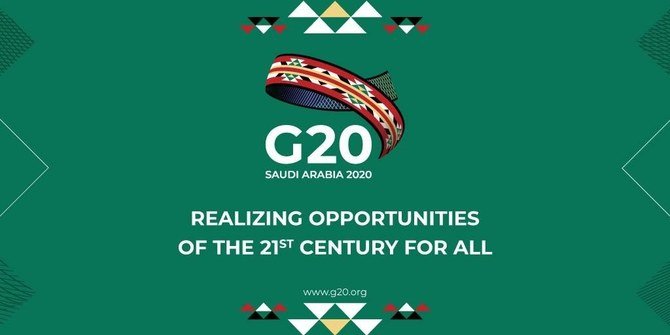
- ARAB NEWS
- 02 Jul 2025

There is a feast of “virtual” global diplomacy this month, with three major summits. While the BRICS and APEC leadership events are eye-catching, it is the G20 that will steal the show in terms of overall importance.
First, just look at the cast list. World leaders will attend from Saudi Arabia (this year’s hosts), China, Germany, India, Japan, Indonesia, Australia, Russia, Brazil, the UK, South Africa, Turkey, France, Italy, Germany, Canada, South Korea, Argentina, Mexico, the EU, and presumably the US too unless Donald Trump has a post-election temper tantrum. Collectively, these powers account for about 90 percent of global GDP, 80 percent of world trade and 66 percent of the global population.
Second, this month’s event, amid the most serious global crisis since the international financial shock of just over a decade ago, has the potential to be the most important G20 since the 2009 meeting in London. Then,with UK Prime Minister Gordon Brown in the chair, the G20 coordinated a $1 trillion stimulus package to rescue the international economy.
Indeed, after the success of the 2009 London event, the G20 seized the mantle from the G7 as the premier forum for international economic cooperation and global governance. French President Nicolas Sarkozy even claimed that “the G20 foreshadows the planetary governance of the 21st century.”
A third reason for the G20 event’s importance is that, given the reduced emphasis on the G7 this year with the US in the chair, there has been a vacuum at the heart of global diplomacy. Trump wanted to convene an in-person G7 event, but that was foiled by the pandemic and no alternative “virtual” 2020 event has been announced.
While the G20 summit therefore has much importance, a key challenge will be forging consensus around a powerful package of measures to tackle the pandemic. To be sure, some steps have already been taken. TheG20 has committed to do “whatever it takes” to minimize the economic and social damage from the coronavirus crisis, restore global growth, maintain market stability, and strengthen resilience. It also agreed to assess gaps in pandemic preparedness and increase funding for research and development in funding for vaccines and medicines.
While the G20 summit therefore has much importance, a key challenge will be forging consensus around a powerful package of measures to tackle the pandemic.
Andrew Hammond
Important as these commitments are, development of a genuinely global response to the pandemic has been stymied by lack of interest in this outcome from some key world leaders — including Trump, who even moved to pull the US out of the World Health Organization (WHO). There have also been key divisions between G20 states, especially China and the US. Trump continues to rail over what he calls the “China virus,” and at a key G20 session this year Xi Jinping focused his remarks on US trade barriers as the best route to rejuvenating growth.
In this troubled context, WHO chief Tedros Adhanom Ghebreyesus has urged G20 leaders to unite to find joint solutions to the pandemic and “ignite a new global movement” to ensure it never happens again. He told them: “You have to come together to confront the defining health crisis of our time. We are at war with a virus that threatens to tear us apart — if we let it.”
Amid these tensions, there are also concerns about how easy it will be to implement summit agreements at the required pace. This underlines the key point that the G20 has failed so far to realize the full scale of the ambition some thrust upon it, at the height of the international financial crisis, in part,because it has no formal mechanisms to ensure enforcement of deals by world leaders.
As the pandemic affects virtually every nation across the globe, there are also worries by states outside the G20 about the club’s composition, which was originally selected in the late 1990s by the US along with G7 colleagues. Former Norwegian foreign minister Jonas Gahr Store has gone so far as to call the G20 “one of the greatest setbacks since the Second World War” because it undermines the UN’s universal sense of multilateralism.
This issue was also picked up by Brown, the host of the 2009 summit, in the context of the coronavirus. He has urged the G20 and the UN to work much more closely together to tackle the pandemic.
Nevertheless, while the G20 is imperfect and has not yet lived up to some of the expectations of it, it continues to be a forum highly prized by its members, as the Saudi-hosted session will show. This year’s event has the potential to be the most important since 2009, but the challenges to realising this are substantial, including intensifying intra-G20 divisions between its two most powerful members, the US and China.